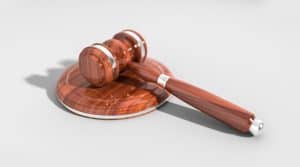Children are among the most vulnerable members of our society, and ensuring their safety is everyone’s responsibility. Reporting suspected child abuse isn’t just a legal obligation for many—it’s a moral duty we all share. But how do you recognise abuse, and what steps should you take to report it? This guide breaks it all down, helping you navigate a serious topic with compassion, clarity, and the right tools. You’ll be well-equipped to make a difference with expert advice from National Compensation Lawyers.
Key Takeaways
- Know the signs: Understand the physical, emotional, and behavioural indicators of abuse.
- Mandatory reporting laws: Some professions are legally required to report suspected abuse in Australia.
- How to report: Learn the simple steps to notify the appropriate authorities.
- Legal protections for reporters: Reporting in good faith is supported by confidentiality laws.
- Support for victims: Access legal and psychological help for affected children.
Who Must Report Child Abuse in Australia?
Mandatory Reporting Laws
Australia has strict mandatory reporting laws designed to protect children. These laws apply to professionals who work closely with children, including:
- Teachers.
- Doctors and nurses.
- Social workers.
- Police officers.
The specifics vary by state. For example, in Victoria, mandatory reporters are required to notify child protection services if they suspect significant harm due to abuse or neglect.

But let’s not forget that protecting children is everyone’s responsibility. You don’t need to hold a professional title to act if you notice something concerning.
Recognising the Signs of Child Abuse
Child abuse isn’t always easy to spot, but certain behaviours and physical indicators can raise red flags:
- Physical Abuse: Bruises, burns, or fractures with no plausible explanation.
- Emotional Abuse: Withdrawal, fearfulness, or a sudden change in behaviour.
- Neglect: Persistent hunger, poor hygiene, or inadequate clothing.
- Sexual Abuse: Knowledge or behaviours that are inappropriate for their age.
Pull Quote: “Protecting children starts with paying attention. A caring adult can be a child’s lifeline.”
If you notice these signs, trust your instincts and take action. It’s better to report and be wrong than to stay silent and risk a child’s safety.
How to Report Suspected Child Abuse
Step-by-Step Guide
- Document Your Observations
- Note any visible injuries, behaviours, or statements made by the child.
- Keep a record of dates, times, and any interactions related to the concern.
- Contact the Right Authority
- In Victoria, you can report to Child Protection Services or the Department of Families, Fairness and Housing.
- For immediate danger, call the police on Triple Zero (000).
- Follow Up (If Necessary)
- In some cases, authorities may require additional details. Be prepared to provide further information if asked.
Legal Protections for Reporters
Worried about the repercussions of making a report? Don’t be. Australian laws offer robust protections for those who report suspected abuse in good faith.
- Anonymity: Your identity can remain confidential if requested.
- Immunity from Defamation: You cannot be sued for defamation when reporting concerns.
These safeguards ensure that doing the right thing doesn’t come at a personal cost. Reporting suspected abuse is an act of courage, and the law is firmly on your side.
Questions to Ask When Seeking Legal Support for Victims
If a child has been a victim of abuse, securing legal assistance is crucial. Here’s a handy listicle of questions to guide your search:
- What experience do you have in child abuse cases?
- What support can you offer for legal proceedings?
- Are you familiar with compensation claims related to child abuse?
- How will you collaborate with psychological and social services?
- Can you outline your fees and the process involved?
By choosing the right legal partner, such as National Compensation Lawyers, you ensure that victims receive the justice and support they deserve.
Support for Victims
Legal Assistance
Victims of child abuse have the right to seek justice. Compensation claims can help cover the costs of therapy, education, and rebuilding their lives. Legal experts like National Compensation Lawyers specialise in guiding families through this challenging process with care and expertise.
Psychological Support
Healing from abuse takes time and professional care. Australia offers various counselling services for children and their families. Organisations like Kids Helpline (1800 55 1800) and Relationships Australia can provide immediate support.
Community Involvement
Neighbours, educators, and community leaders all play a role in creating safe environments for children. Reporting abuse isn’t the only way to help; fostering awareness and vigilance also makes a difference.
Conclusion
Reporting suspected child abuse is one of the most impactful ways to protect vulnerable children and prevent further harm. Recognising the signs, understanding your legal obligations, and taking decisive action can save lives.
If you or someone you know needs legal guidance for a child abuse case, reach out to National Compensation Lawyers. Together, we can make a safer world for children, one step at a time.

